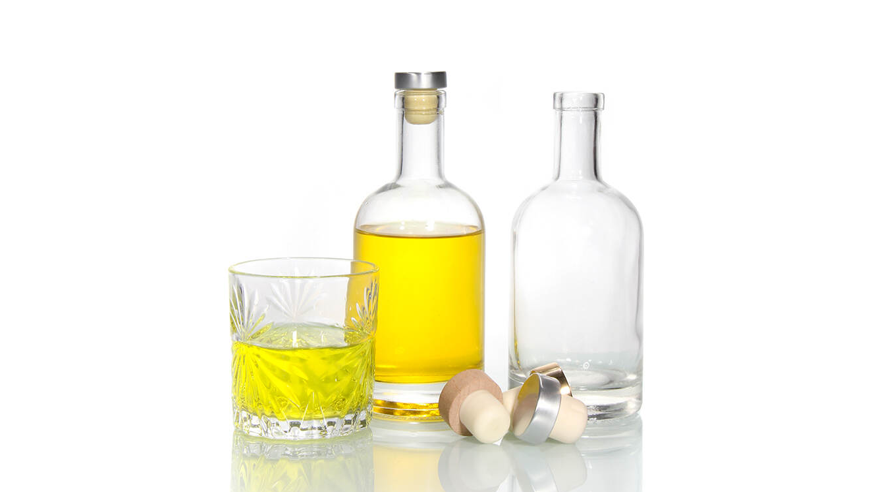Email cannot be empty
Password cannot be empty
Email format error
Email cannot be empty
Email already exists
6-20 characters(letters plus numbers only)
The password is inconsistent
Email format error
Email cannot be empty
Email does not exist
6-20 characters(letters plus numbers only)
The password is inconsistent


When it comes to wine packaging, the container does more than just hold the liquid—it protects quality, influences perception, and affects the environment. As the wine industry explores sustainable alternatives, a debate has emerged: glass bottles vs plastic bottles vs aluminum cans—which is truly the best choice for wine?
Let's break down the pros and cons of each packaging type to discover which one is most suitable for preserving and presenting wine.
For centuries, glass bottles have been the dominant packaging choice for wine. They offer a combination of tradition, elegance, and functionality that few materials can match.
Superior preservation: Glass is non-reactive and airtight, ideal for aging and maintaining wine quality.
Premium appeal: Glass exudes a sense of craftsmanship and luxury, aligning with the wine-drinking experience.
Recyclable and reusable: Glass can be recycled indefinitely without losing quality, making it an environmentally friendly choice.
Heavier and fragile: Glass bottles are heavier than other materials, increasing shipping costs and breakage risks.
Higher carbon footprint in transport: The added weight contributes to higher fuel consumption.
High-end wines, long-term storage, traditional wine branding, premium markets.
Plastic bottles, especially PET (polyethylene terephthalate), have been introduced as a lightweight alternative to glass.
Lightweight: Reduces shipping costs and carbon emissions.
Shatterproof: Safer for outdoor events or travel purposes.
Cheaper to produce: Cost-effective for mass production.
Limited shelf life: Plastic is permeable to oxygen over time, which can affect wine flavor.
Environmental concerns: Although recyclable, plastic is often downcycled and contributes to long-term waste.
Perceived as lower quality: Consumers tend to associate plastic bottles with cheaper or inferior products.
Single-serve wines, budget wine brands, casual events, short-term consumption.
Aluminum wine cans are gaining traction, especially among younger consumers and casual drinkers.
Extremely lightweight: Easy to carry and store, especially for travel or outdoor use.
Fast chilling: Aluminum cools faster than glass or plastic.
Fully recyclable: Aluminum is highly recyclable and can be reused indefinitely.
Convenient for portion control: Great for individual servings.
Limited perception of sophistication: Not suitable for premium or aged wines.
Metallic taste risks: Without proper linings, cans can affect the taste of certain wines.
Shorter shelf life: Better for wines meant to be consumed soon after production.
Rosé, white, sparkling wines; casual drinkers; on-the-go lifestyles.
| Feature | Glass Bottles | Plastic Bottles | Aluminum Cans |
| Preservation | Excellent | Moderate | Good (short-term) |
| Recyclability | High | Moderate | High |
| Consumer Perception | Premium | Budget | Casual/Trendy |
| Portability | Low | High | Very High |
| Cost | Higher | Low | Moderate |
| Shelf Life Suitability | Long-term storage | Short-term | Short-term |
There is no one-size-fits-all answer. Each material serves different purposes based on product positioning, target audience, and distribution goals.
However, glass wine bottles remain the most preferred choice for wineries focused on:
Product quality and brand heritage
Premium market positioning
Long-term storage potential
Plastic bottles and aluminum cans have carved out their space in casual and convenience-driven segments but still lag behind in terms of consumer trust and wine preservation.
As a glass wine bottle manufacturer, we believe that glass strikes the ideal balance between tradition, performance, and sustainability. With endless possibilities for custom shapes, colors, embossing, and closures, glass bottles not only protect wine but also elevate its value.
While innovation in packaging is important, wineries must weigh each option carefully based on their brand image and customer expectations.
Whether you're a boutique winery or an international brand, we offer OEM and wholesale glass wine bottles tailored to your exact needs. Contact us today to explore elegant, functional, and sustainable packaging solutions for your wine business.